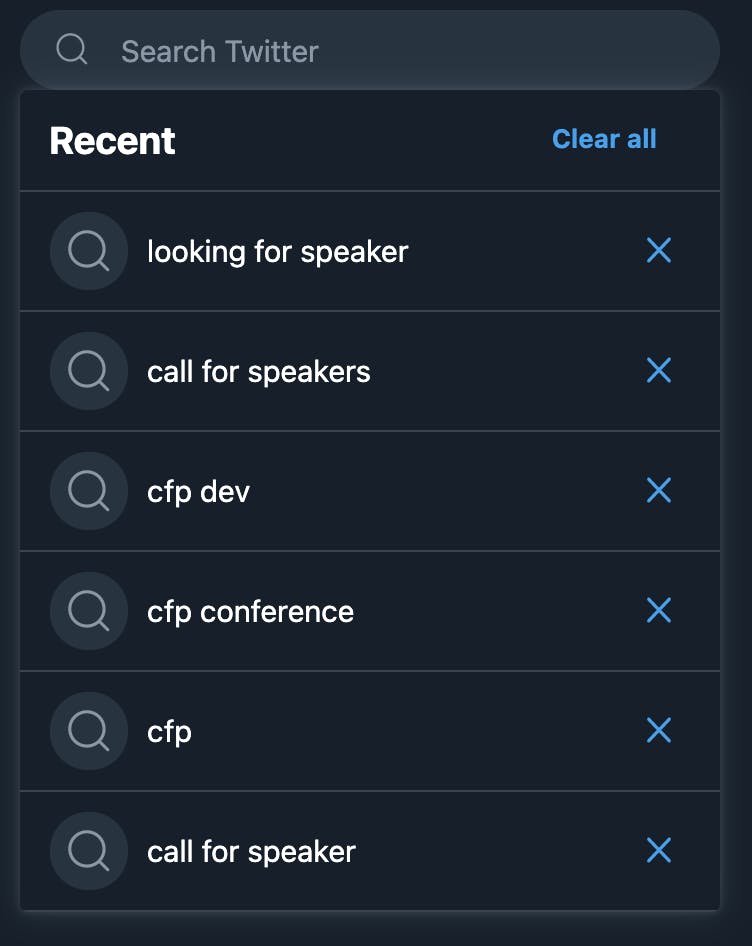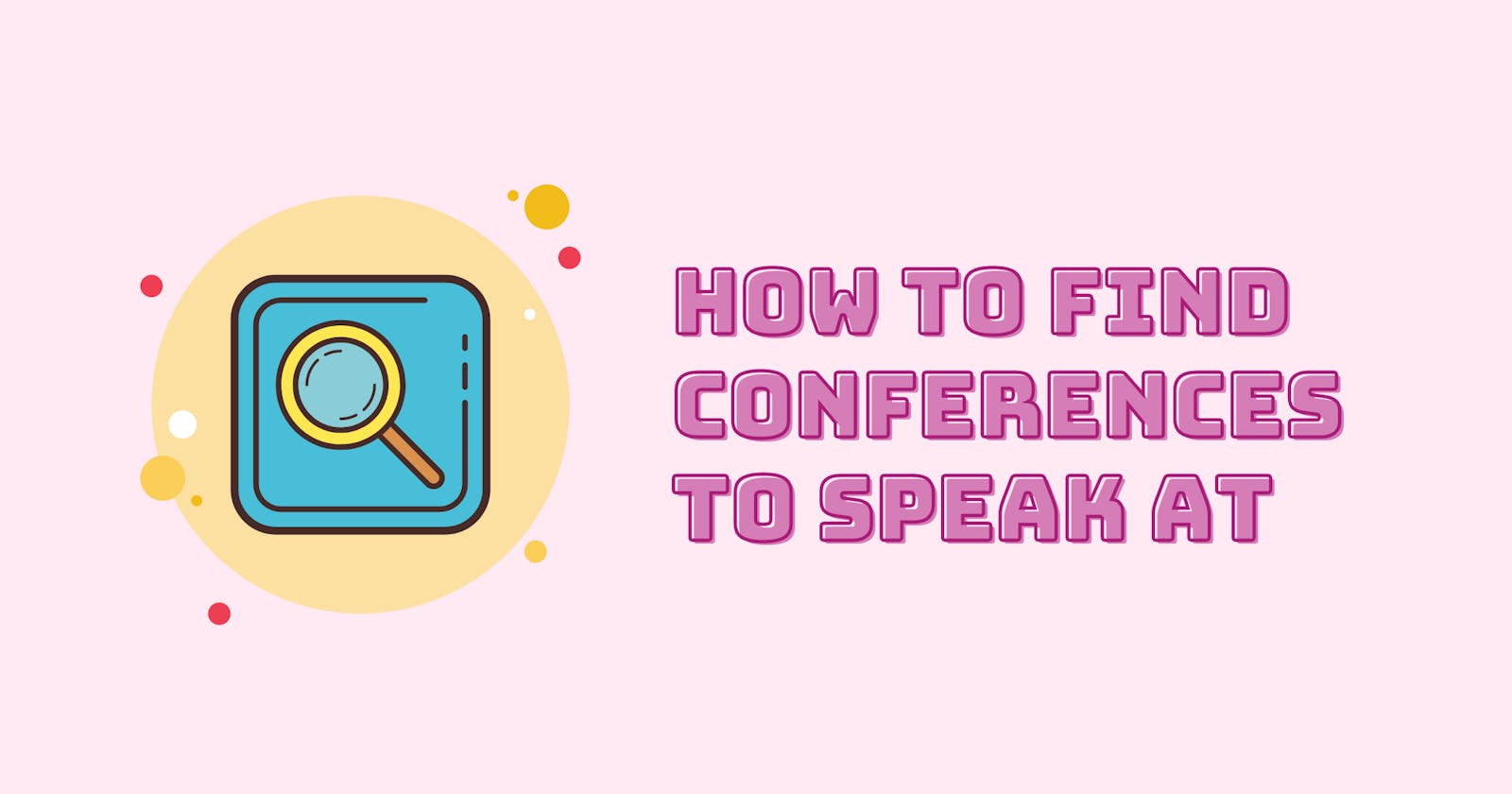When I first tried to get into conference speaking, I had no idea how to get started. I'd attended some meetups in the past so I knew the speakers had to come from somewhere, I just didn't know where that somewhere was.
If you're reading this article, then you're probably wondering the same. No worries. Somehow, I managed to figure it out and now I'm writing this so you can have a bit more knowledge than I did when I started out.
I'll be addressing questions I've received in the past regarding how to find conferences to speak at, namely:
- What conferences can I speak at?
- How do I get my first speaking engagement?
- How do I speak at international conferences?
- How do I get invited to speak at conferences?
What conferences can I speak at?

Ideally, you should speak at conferences that overlap with your areas of interest or expertise. Other than that, there's no particular prerequisite for speaking at conferences.
Some conferences may ask if you have any previous speaking experience or for links to your previous talks but that shouldn't be a deterrent. You also don't need to have a strong grasp of technology or frameworks to speak at conferences, there are a lot of non-technical and soft skill related tracks which accept talks ranging from career skills to personal development.
If you have something you want to share, there's a space for it.
A great way to decide the types of conferences you want to speak at is to look up existing conferences and determine if the content appeals to you. If you're a designer, is there a particular design conference or meetup whose previous events seem interesting to you? You could also look at existing speakers in your field and see the types of conferences they've spoken at in the past.
How do I get my first speaking engagement?

Speaking at local meetups is a great introduction into public speaking. The first events I spoke at were local meetups where I reached out to the organizers or I happened to be invited to.
You can look up meetups you've attended or heard about and reach out to the organizers. I usually send them a message on Twitter or an email specifying my interest and what topic I would be interested in presenting.
I'd recommend this method for first-time speakers as local meetups tend to have a smaller number of people in attendance and are usually more casual than major conferences so it might be a bit less nerve-wracking. You can also find smaller meetups on meetup.com or eventbrite.com and contact the organizers directly.
Whenever reaching out to people, it helps to clearly state your interest and the topic you'd like to present. You can send an email or DM in the structure:
Hello, I came across this group online and I'd be really interested in presenting a topic at the next meetup. These are the details of my proposed topic:
{Talk Title}
{Talk Description}
{Target audience and why you think the talk would be good for the meetup}.
{Other notes for the talk e.g. proposed duration or technical requirements}
Looking forward to hearing back from you,
Best regards.
You could also include your bio and social media links.
How do I speak at international conferences?

For larger conferences, there are aggregator sites that list major conferences accepting speaker applications. These are the sites I use:
Most of these sites have newsletters you can subscribe to so you can get Call For Papers sent directly to your email.
Twitter is another great resource for finding conferences to speak at across the world. I use search terms like "#CFP", "call for papers", "call for presenters" or "submit a talk" .

There are also tweetbot accounts like @mozTechCFPs and @TechDailyCFP that work in the same way as aggregator sites.
Finally, you can look up conferences on Google using similar search terms as the ones for Twitter.
How do I get invited to speak at conferences?

Word of mouth is usually the fastest method. If a conference organizer sees you speak at a previous conference and they think you'd be a good fit for their conference, they'll be sure to reach out to you.
Conferences sometimes have recurring events and they tend to extend invitations to past speakers.
It also helps to publicly build a speaker's profile - have a page online where you list your previous talks, slides and videos and indicate your availability to speak.
Conclusion
I hope you found this article helpful (if you did, feel free to let me know). Thanks for reading :)
This article is part of an ongoing series so if you have any other questions about speaking at conferences, you can leave them in a comment or send me a message on Twitter.

